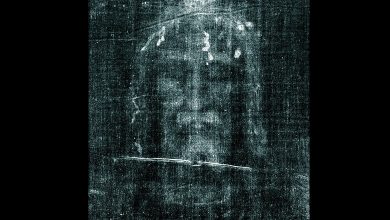7 signs of false repentance

For many, repentance comes down to asking God for forgiveness. After all, this is also the definition we find in traditional dictionaries, namely, deeply regretting having done or said something. However, if we open up the Word of God, we find that repentance is much more than that. The example of David confirms it to us moreover: repentance is everything, words, actions, feelings, and a new attitude. So here are the 7 signs of false repentance or at least repentance that is not true.
Repentance without a genuine desire to change
When you repent, you realize that you have hurt the Lord, that you have strayed from His ways, and that you have made Christ’s sacrifice on the cross in vain. You must, of course, ask for forgiveness, but above all, you must nurture in you the desire to change. You must do all in your power to let the Holy Spirit transform my nature, starting with crucifying the desires of your flesh.
“If my people, upon whom my name is called upon, humble themselves, and pray, and seek my face, and if they turn away from their evil ways, I will answer them from heaven and will forgive them their sin, and I will heal their sins. country.” (2 Chronicles 7:14)
Repentance without remorse or regret
The “good” guilt is guilt that leads me to the feet of the Master to ask forgiveness and not one which makes you flee from his face. If I have no remorse or regret, you haven’t fully grasped the magnitude of my actions and take your sin lightly.
“Then they heard the voice of the Lord God, walking through the garden towards evening, and the man and his wife hid from the presence of the Lord God among the trees of the garden.” (Genesis 3: 8-10)
Repentance where one seeks to justify one’s fault
You have sinned. You have to take full responsibility for it. You must not seek to justify your fault because no argument will be valid enough to explain your disobedience to the Lord and His Word. Whatever the reasons that led you to sin, you recognize your weakness because you gave in to his call.
A repentance that does not prevent us from repeating the same sin
You shouldn’t just apologize to God. It would help if you also did violence to yourself and not fall back into this sin. You know what is your weaknesses are; you know what can be a downfall for me. Therefore, you must do everything to escape these temptations and avoid finding yourself in situations where you will prey on the enemy.
“God saw that they were doing this and coming back from their wrong way. So God repented of the evil he had resolved to do them, and he did not do it. ” (Jonah 3:10)
Repentance prompts us to blame others and find another culprit
Even if you have sinned with one or more other people, even if it was a third party who led you to the fault, you recognize that you had your free will and that you could have refused. I did not and therefore am entirely to blame. I don’t have to blame another person, not even the devil.
Repentance that seeks to relativize the fault committed
Whatever fault is committed, a sin is a sin. There is no classification or scale of sin, although the consequences are different. Before the Lord, you are at fault. So it would help if you did not try to relativize your fault. You also must not think that because a third person has done the same thing or worse than you, you are exempt from repentance, quite the contrary.
“For the wages of sin is death” (Romans 6:23)
Reluctant repentance
It would help if you did not repent because it forced you. You do not have to repent to please your church, family, and loved ones. You must not repent out of love for your partner. You must ask God for forgiveness because you have become aware of your fault. There is little point in apologizing to someone when you don’t think a word of it. It is the same with God. You must know that God searches the depths of your heart. He knows if you are sincere or if you do this act reluctantly.
“He who hides his transgressions does not prosper, but he who confesses them and forsakes them obtains mercy.” (Proverbs 28:13)



